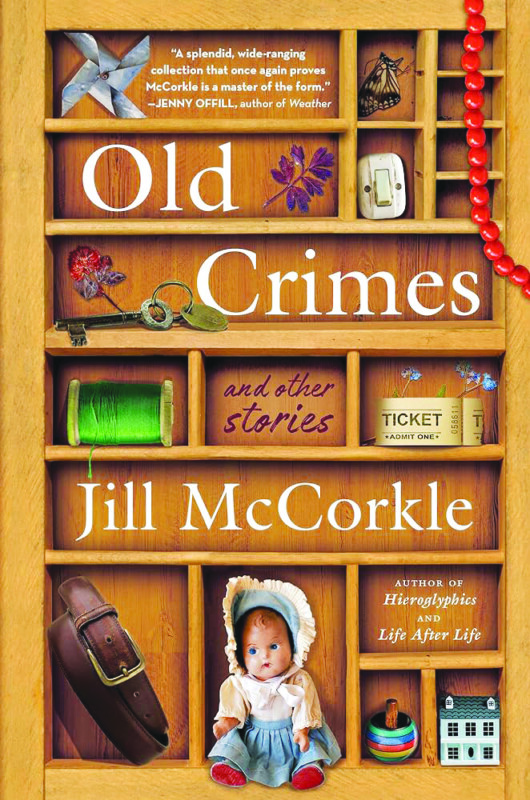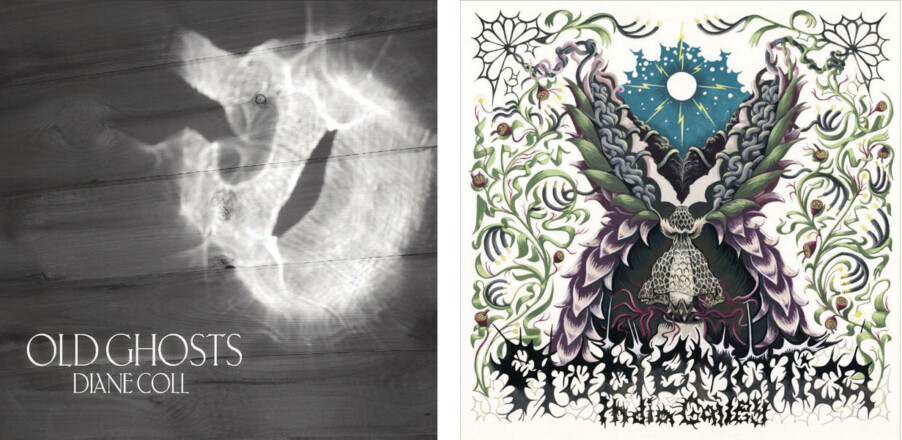A look at some of the films on the nomination list
First and foremost, Oscar nominations are a list of movies worth checking out.
While the Oscar nerds among us might still be arguing whether Gretas Gerwig and Lee were robbed (yes) or if Saltburn should have been a contender somewhere (eh), it’s nice to occasionally remind oneself (me) that the Oscars can also help you catch up on the movies from the previous year you may have missed and the movies, like most of the International Film list and pretty much all but one of the shorts, that you (I) haven’t even heard of. (Find a list of all the nominees, announced last week, at oscars.org.)
And, many of these films are available at home.
Of the 10 Best Picture nominees, currently, American FictionandPoor Things (in theaters) and The Zone of Interest (in theaters in Boston and slated to come to Red River Theatres in Concord in February) are not available for home viewing. (The Zone of Interest is the one movie on the list of 10 I haven’t seen yet.) Anatomy of a Fall, Past Livesand Oppenheimer are available for rent or purchase. Barbie (Max), The Holdovers (Peacock) and Killers of the Flower Moon(Apple TV+) are available via VOD and through a streaming service. Maestro is only on Netflix.
Plenty other nominees are also available for home viewing.
Rustin (Netflix) was the one movie on the list of five acting nominees I hadn’t seen yet (and the only one that doesn’t have a movie in the “best picture” category). Colman Domingo plays Bayard Rustin, a civil rights activist for the middle chunk of the 20th century who had a hand in a variety of movements for racial and workers rights, including, as documented here, in the 1963 March on Washington. Rustin was smart, funny, highly competent — and gay, a fact that made him a target for those in (old guard politicians) and out (the FBI) of the movement. Though this movie was written by Julian Breece and Dustin Lance Black, it has that very Aaron Sorkin feel — with people listing off accomplishments, learning to compromise, finding common ground. I don’t know if that makes it competence porn, exactly, but there is a very “chicken soup for a politically liberal soul” feel to the way it shows Rustin working with all the coalitions involved in the event. We also get his friendship with Martin Luther King Jr. (Aml Ameen), drawn in a way that helps to remind you that this iconic figure was also a political person, who had to deal with the same pushes and pulls that would be familiar today. B+
Nyad (Netflix) is the actress category version of this (biopic, no Best Picture nomination, I hadn’t seen it yet). Annette Bening is Diana Nyad, an athlete whose claims to fame include distance swimming. After trying but failing to swim from Cuba to Florida as a twenty-something in the 1970s, she decides to try again in the 2010s, shortly after turning 60. This requires Nyad to train for distance swims again — first spending hours in a pool and then heading to more open water. In addition to just the physical differences of being 60, other challenges of the swim include strong (and changing) currents, weather, sharks and jellyfish. Jodie Foster, playing Nyad’s longtime friend and an athletic trainer who agrees to help Nyad train Bonnie Stoll, is also nominated for a supporting actress award. Bonnie and Diana are, as they both explain at various parts in the movie, each other’s person. Though not a romantic couple, they help to get each other through and bolster each other. Bonnie also helps Diana be more of a human who can relate to other humans. Diana Nyad as shown here is the personification of the phrase “she’s A Lot.” At a toast with her crew before one Cuban attempt, Nyad basically talks about herself and how great this is for her, with Bonnie having to step in to thank the team. Nyad is driven, sometimes to the exclusion of everyone around her. She is also extremely hard on herself and carries all sorts of baggage from a turbulent childhood and sexual assault by her swimming coach as a teen. Bening’s performance is a solid “great but flawed” athlete performance but there really is something extra to what Foster’s doing, something that gets to the emotions of a long-term partnership. B+
The only other acting nomination going to someone not in a Best Picture nominee is Danielle Brooks’ supporting actress nomination for The Color Purple, the musical based on the book of the same name and currently available via VOD and on Max. I reviewed the movie last week and thought it was fine, with Brooks definitely a standout performance.
In the writing categories — original and adapted — there is only one nominee not up for a Best Picture nod. Killers of the Flower Moon did not get a writing nod, but May December (Netflix) did. With a screenplay by Samy Burch, this Todd Haynes-directed movie (which I reviewed a while back) stars Natalie Portman playing an actress who has come to meet and study a woman (Julianne Moore) who decades earlier as a thirty-something had an affair/criminal relationship with a 13-year-old boy that sent her to jail. They later married; the movie is set when their youngest children are graduating from high school. It’s a dark, occasionally bleakly funny movie but it is also extremely hard to watch.
Some of the other nominees I’ve caught up with recently:
• The Creator(VOD and Hulu) This sci-fi movie starring John David Washington is set in a future where America is at war with a country called New Asia where AI robots of all sorts — from robots that kind of resemble those pointed-headed Phantom Menace bots to simulants that look almost human — live in relative peace with the human population. America is dead set on eliminating AI creatures and is on the hunt for a rumored weapon that could take down the U.S.’s NOMAD aircraft, a giant metaphor for drones, I mean, a large plane thing that blows up villages with both precision and widespread destruction. Washington plays a former Army sergeant lured back for one more mission with the hope that he will be able to find Maya (Gemma Chan), the wife he thought had died years earlier. It is a solid adventure story and is nominated in the sound and visual effects categories. B+
• The Last Repair Shop (Hulu & Disney+) Nominated in the Documentary Short Film category, this 39-minute film about Los Angeles students, the instruments they play and the adults who fix those instruments is a charmer. We hear the stories of kids talking about what music means to them and we hear from the adults talking about how they came to repair instruments, many with their own musical journeys. A
• The ABCs Of Book Banning (Paramount+) Another short that makes good use of kid interview subjects, this Documentary Short Film (27 minutes) talks to kids about books that have been banned, challenged or restricted at public school libraries. The standouts here are the incredibly thoughtful kids who don’t get why a picture book about two penguins adopting a baby penguin (And Tango Makes Three) or, for older kids, books about the Holocaust (The Diary of Anne Frank, Maus) are not appropriate. The other star: a 100-year-old World War II soldier’s widow speaking at a school board meeting against book banning. That lady deserves her own doc. B
• Ninety-Five Senses (on smallscreenings.org/mast/ninety-five-senses/film) I found this Animated Short Film nominee thanks to the Oscar movies guide on AllYourScreens.com. Tim Blake Nelson’s voice accompanies the beautiful watercolor and sketch visuals of the story. A man on what we come to learn is his last day discusses his life as connected to his five senses. B+
• The After (Netflix) This Live Action Short Film nominee (18 minutes) stars David Oyelowo as a grief-overwhelmed man just trying to get through his day as a driver for a ride service and facing what finally breaks him. Oyelowo’s performance makes the movie. B
• Four Daughters (rent or purchase or streaming on Kino Film Collection) A Documentary Feature Film nominee, this movie about a Tunisian mother, Olfa, and her four daughters is a blend of documentary and reenactment, with actors playing her two oldest daughters, who ran away to join ISIS (and are now in jail in Libya), the real life younger daughters and another actor occasionally playing Olfa. The movie is not what you think at first, not a straightforward afterschool special-ish take on teen girls being sucked in by a dangerous organization — there are shipping containers of baggage related to Olfa’s young life, her turbulent relationship with her daughters, the violent men who were in their lives and the violence that was a part of their lives out in the world. The movie is mournful and disturbing but you also can’t look away. B+
• 20 Days in Mariupol (available for rent or purchase and at pbs.org) This Documentary Feature Film nominee features footage shot by AP journalist Mstyslav Chernov, one of the very few journalists in Mariupol, Ukraine, during the Russian invasion. Though we hear some of Chernov narrating what he’s seeing or how the war makes him worry about his own family elsewhere, the documentary is at its strongest when it’s just showing regular people trying to get through the war — sheltering underground, trying to get information about how to keep their families safe, trying to get medical help after a bombing. Footage of a mother crying “why, why” after hospital staff telling her they couldn’t save her child or a father sobbing “my son, my son” after his teenager is pronounced dead — both children killed in bombings — is among the movie’s most impactful moments. B+
Featured photo: The Creator.






